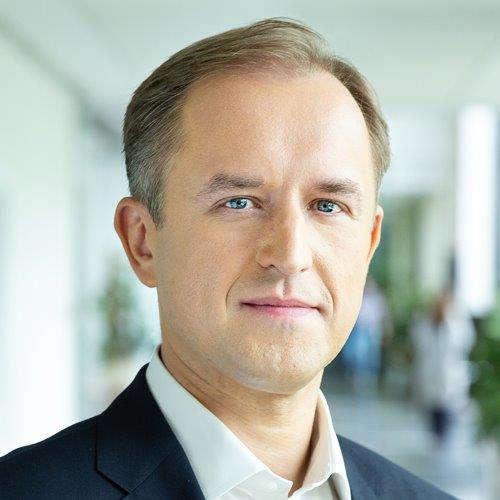Q: Almost 6% EBITDAaL growth in 2021 is a really strong achievement. What made this growth rate that high?
Indeed, our results for 2021 were strong across the board and almost 6% EBITDAaL growth is a remarkable achievement. However, please note that 2021 was already the fourth consecutive year in which we reported growth of our operating profitability. This means that we are consistent in delivering growth. In 2019 our growth amounted to almost 4%, so last year is in line with the trend. It was also slightly enhanced by the low comparable base of 2020, during which we had to incur certain COVID-related provisions.
This dynamic is a natural consequence of many of the strategic initiatives that we conducted over the previous years that now bear fruit. I will mention large-scale fibre rollout, value-driven strategy in convergence and mobile, smart expansion of competencies to value-added ICT services on the B2B market and huge cost transformation. I am particularly pleased that growth last year for the first time was driven by profitable revenue expansion and not only by cost savings, as was the case in previous years.
Our strong 2021 performance makes me confident about our ability to achieve financial ambitions embedded in the .Grow strategy, despite the obvious challenges that we are dealing with in 2022.





